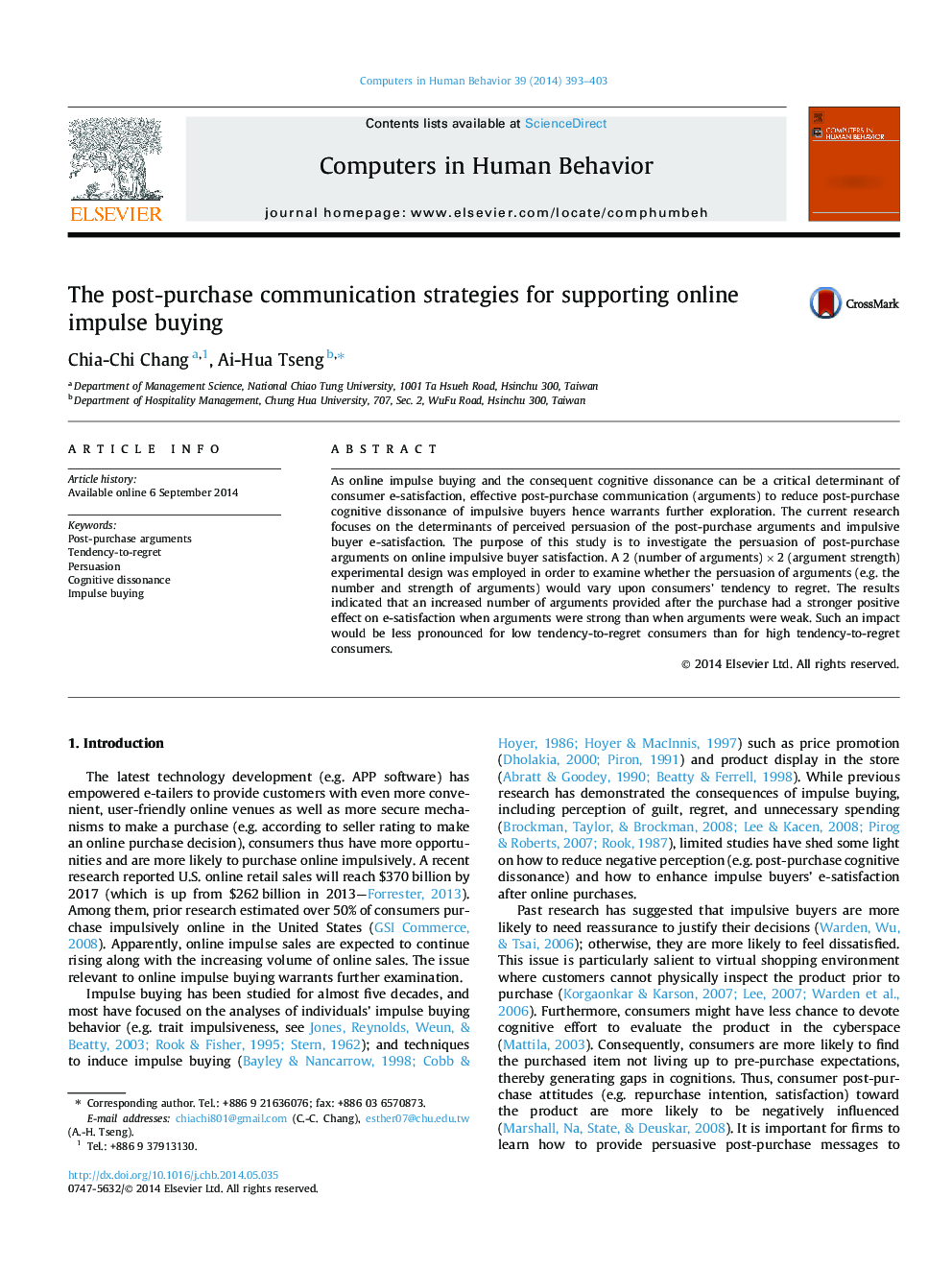| Article ID | Journal | Published Year | Pages | File Type |
|---|---|---|---|---|
| 6838906 | Computers in Human Behavior | 2014 | 11 Pages |
Abstract
As online impulse buying and the consequent cognitive dissonance can be a critical determinant of consumer e-satisfaction, effective post-purchase communication (arguments) to reduce post-purchase cognitive dissonance of impulsive buyers hence warrants further exploration. The current research focuses on the determinants of perceived persuasion of the post-purchase arguments and impulsive buyer e-satisfaction. The purpose of this study is to investigate the persuasion of post-purchase arguments on online impulsive buyer satisfaction. A 2 (number of arguments)Â ÃÂ 2 (argument strength) experimental design was employed in order to examine whether the persuasion of arguments (e.g. the number and strength of arguments) would vary upon consumers' tendency to regret. The results indicated that an increased number of arguments provided after the purchase had a stronger positive effect on e-satisfaction when arguments were strong than when arguments were weak. Such an impact would be less pronounced for low tendency-to-regret consumers than for high tendency-to-regret consumers.
Related Topics
Physical Sciences and Engineering
Computer Science
Computer Science Applications
Authors
Chia-Chi Chang, Ai-Hua Tseng,
